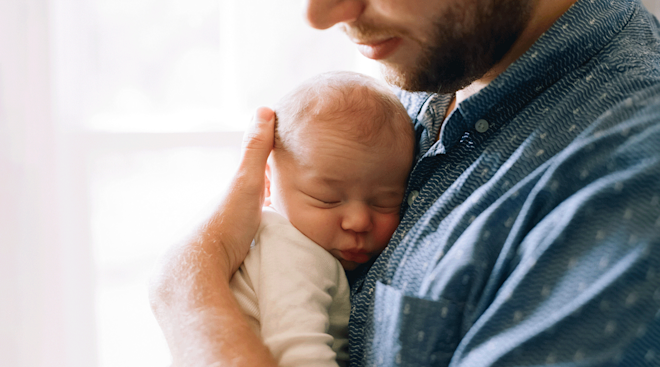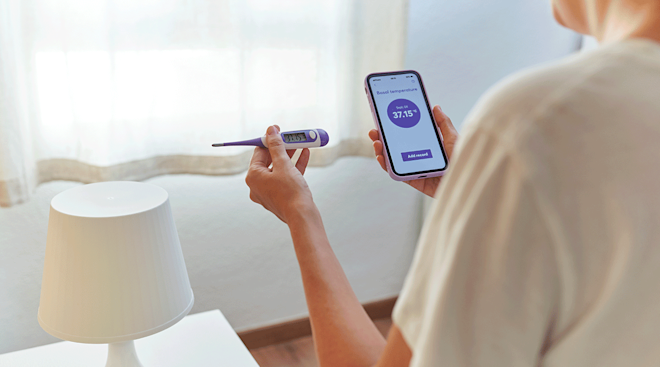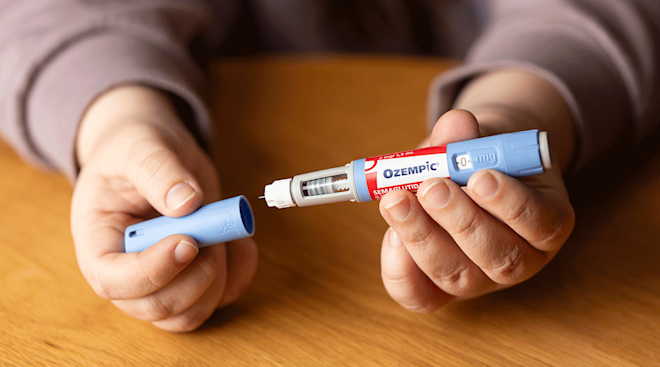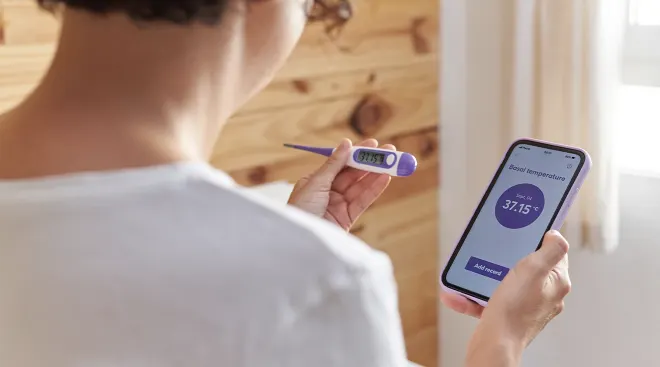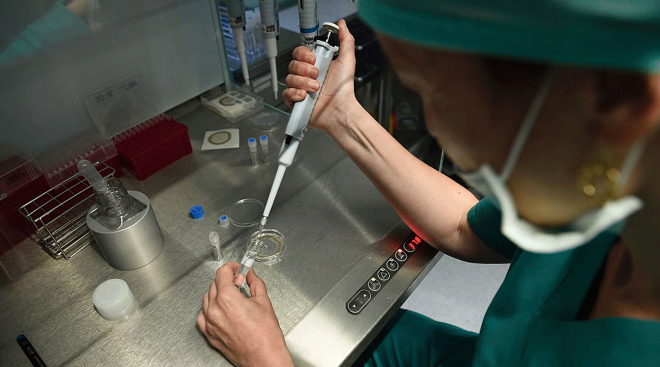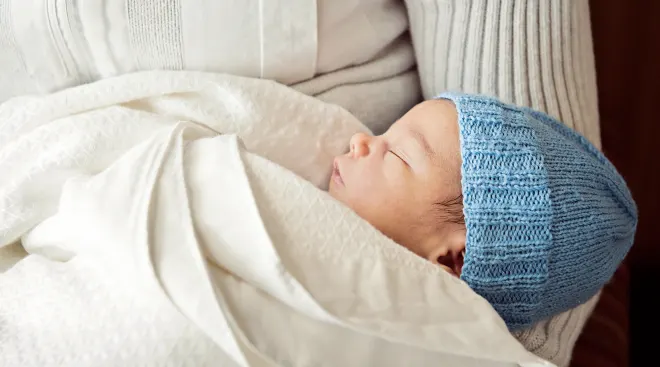What Affects Your Fertility (and How to Boost It)
Fertility isn’t usually something women think about much. You expect your reproductive system to produce babies, just as you expect your heart to pump blood and your lungs to breathe air. But if you don’t get pregnant after a few months of trying, fertility becomes all you might think about—and you’re not alone. About 11 percent of women of reproductive age in the US have trouble conceiving, which is why many doctors these days are having fertility discussions earlier with patients.
While the internet will try to convince you otherwise, there aren’t any magic fertility foods, fertility pills or ancient rituals that have been proven to jumpstart conception. The truth is, while some of your lifestyle choices affect your chances of conceiving, you largely have limited control over your fertility, and the best thing you can do (assuming there’s no underlying medical condition) is to keep trying. “The biggest predictor of success in conceiving with or without assistance is persistence,” says Ginny Ryan, MD, division chief for reproductive endocrinology and infertility at UW Medicine’s department of obstetrics and gynecology. Still, a few factors may lower your risks for fertility issues, and burgeoning research shows there might be small things you can try to boost your chances of conceiving.
Simply put, fertility is a body’s capacity for producing babies. The clinical definition of _in_fertility is not being able to become pregnant after 12 months of having regular, unprotected sex. (By regular, we mean every other day within your fertility window—more on that later.) Research suggests that after one year of unprotected sex, 12 to 15 percent of couples are unable to conceive, and after two years, 10 percent of couples still haven’t given birth to a live-born baby.
Because conception requires an egg, sperm and a viable place for them to meet, fertility depends just as much on your partner’s body—or wherever the sperm is coming from—as it does on yours. According to the National Institute of Child Health and Human Development, in one-third of infertile couples, the issue lies with the man; in another third the issue is with the woman and with the last third, the problem is with both the man and woman or can’t be identified.
And yet, as Ryan points out, “women are often very quick to take on the burden of the fertility issue, to assume it’s their problem. [But] you have to resolve that kind of distress and sense of control that women have.”
While few factors have been proven to boost fertility without a doubt, there are several that can put a damper on it. If you’re having a hard time conceiving, consider taking a closer look at the following:
Age
Fertility declines with age in both men and women, but its implications are much greater in women, who are born with all the eggs they’ll ever have. “It’s the most obvious factor affecting fertility,” says Mark Crider, MD, an infertility researcher and ob-gyn in academic practice at AdventHealth Medical Group in Orlando. Women in their 20s have better odds of getting pregnant since they have more eggs and a higher ratio of genetically normal ones. In their 30s, women are about half as fertile. A woman’s chance of conception declines significantly after age 35. Male fertility also declines with age—especially after age 40—but more gradually. It seems incredibly unfair, but that’s why having discussions with your doctor about fertility—even before you’re thinking about starting a family—may help you plan accordingly.
Medical conditions
Certain health issues or genetic disorders can affect fertility. Sometimes the condition itself will have a direct impact, as in the case of endometriosis, fallopian tube blockage, hyperthyroidism, and polycystic ovarian syndrome. Other times, it’s the medication used to treat the condition that may interfere with conception, as is the case with certain drugs for diabetes and thyroid conditions.
Weight
A healthy BMI is between 19 and 25. As your BMI increases beyond that, fertility decreases, and that drop accelerates even more when you’re morbidly obese, which is defined as having a BMI of 40 or higher. As R. Stan Williams, MD, professor of reproductive medicine at the University of Florida, notes, the added weight correlates with more hormones disrupting a woman’s system. Many women might stop ovulating regularly as they get heavier. Chronic inflammation that comes with being obese might also hinder conception, he says. At the same time, being _under_weight can affect fertility too. Many women with less than 17 percent body fat have problems ovulating, though there aren’t good data to explain why.
Lifestyle habits
While there are limited data on how to increase fertility by eating specific foods, doctors generally agree that eating nutritiously and exercising moderately will at least keep you from decreasing your baseline chances of getting pregnant. However, exercising too vigorously or having an eating disorder can impinge on your fertility. Both can “disrupt the feedback systems between the brain and ovaries, which can disrupt ovulation,” Williams says.
Of course, smoking and excessive alcohol consumption should be off-limits. “Any alcohol intake in the months a woman is trying to conceive will reduce her chances of conceiving that month, and anything above moderate drinking will have an impact on the pregnancy itself,” Williams says.
Emotional factors
There’s no doubt that emotions play a role in your fertility, but there aren’t any hard and fast rules as to how. One study from The Ohio State University Wexner Medical Center suggests that preconception stress might play a role in infertility. “Infertility can be a big existential crisis for some people, and studies have shown that it can be just as distressing as or more stressing than a cancer diagnosis,” Ryan says.
Environmental factors
There is emerging research suggesting links between infertility and environmental toxins, including chemicals found around our homes, personal care products and cleaning solutions—but the impact of daily exposure to these things isn’t fully understood. Williams calls this “a gray area.” “As a general rule,” he says, “you want to avoid toxic exposure, but what is a toxin, exactly? Certainly if you’re a farmer or a worker dealing with pesticide management, you don’t want to be around that stuff.”
Like many things in life, timing is everything when it comes to boosting fertility. Typically, you’ll have better fertility in your 20s than your 30s, and in your 30s than in your 40s. The number of viable eggs dwindles year after year, so talk about your plans for starting a family as soon as possible with your ob-gyn.
“Maybe you don’t get periods at all because of polycystic ovary syndrome, or maybe you had chemotherapy when you were a kid, which might mean fertility problems right off the bat,” Ryan explains. “There are a number of reasons why picking things up early can be really helpful.”
A preconception consultation lets you lay out and tackle any current health issues or genetic disorders that might require tests or adjustments in medication. Beyond that, Crider advises preparing for conception as you would for pregnancy: Start taking a prenatal vitamin for folic acid, exercise moderately and eat nutritiously.
So are there specific foods that increase fertility? There is mounting evidence showing that diets high in unsaturated fats, whole grains, vegetables and fish may boost fertility in both women and men. Adding an iron supplement may help too, but always check with your doctor before adding vitamins or supplements to your regime.
A few more nutrition tips:
- When it comes to dairy, opt for the full-fat cup of milk or yogurt vs. skim or low-fat versions.
- Avoid sugar and saturated fats, which have been associated with poorer fertility in both women and men.
- Eat more vegetable protein—beans, nuts and seeds—and less red meat, which has been associated with a lower chance of conception and a lower semen concentration in men.
When it comes to exercising, lower-intensity activities like walking, swimming and yoga may be better for fertility than vigorous workouts, which for some women can disrupt ovulation, notes Williams. There is also research showing that the light exercise, breathing techniques and meditation afforded by practicing yoga may lower anxiety in women suffering from infertility.
Upping your odds of getting pregnant means learning your body’s signs of ovulation, which will help you get the timing of sex right to take advantage of your fertility window (which is the five days leading up to ovulation and the day you ovulate). You should be having sex at least every other day during this window, Williams says, keeping in mind that an egg can be fertilized for only 12 to 24 hours, and sperm can survive in a woman for only three to five days. You could have sex every day during that time, but some couples may find that stressful. Besides, Williams adds, having sex every two days ensures there is always sperm present when the egg ovulates.
That means if, like most women, you have a 28-day cycle and ovulate on day 14, then day 14 is your jackpot. “If you have sex every other day starting on day 10 through day 16, you’ve covered your fertile window,” Williams says. “A good rule of thumb is to subtract 14 from your cycle length—that’s the average day that you’re ovulating.”
Another thing to keep in mind: Worrying about conceiving a baby can be extremely stressful. Studies have shown that stress can press pause on people’s menstrual cycles, so make space and time for yourself to calm down. “There is nothing worse than telling a couple, ‘just stop worrying so much; go home and have sex, and it’ll happen.’ That’s the worst thing to say and the worst thing to hear,” says Ryan. She recommends finding something to get you through the process, whether it be counseling, meditation, yoga or reaching out online for support.
The best time to seek fertility treatment depends on your circumstances, particularly your age. Women should visit their ob-gyn for regular checkups and fertility discussions regardless—but if you think you’ll have trouble conceiving or are already experiencing trouble conceiving, follow up. Your doctor may refer you to a reproductive endocrinologist, an ob-gyn who specializes in fertility issues.
Here’s how long the American College of Obstetricians and Gynecologists (ACOG) suggests actively trying to conceive before reaching out for a fertility consultation:
- Under age 35: 12 months (but consider reaching out earlier if you have health issues or irregular menstrual cycles)
- Age 35 or older: six months (and even earlier if you’re 40 or older)
Screening for fertility issues falls into three buckets, Crider says, and it’s typically easier to start with the male. You need viable sperm, which can be evaluated by a urologist for a low count or some other problem. For women, the issue usually has to do with anatomy—such as blocked Fallopian tubes—or ovulation.
Tubal conditions tend to be difficult to fix without surgery, so it’s common to go directly to in vitro fertilization (IVF), a procedure that includes collecting eggs from your ovaries, having them fertilized by sperm in a lab and then having the embryos transferred into your uterus.
Ovulation issues—related to the quality and quantity of a woman’s eggs and the ability to regulate the cycle—may require a change in lifestyle or weight, Crider says. It may also require a regimen of fertility medications, such as Clomid or letrozole. These drugs may help make your ovulation cycle more regular. If issues persist, fertility specialists may recommend intrauterine insemination (IUI), a procedure where sperm are placed directly in your uterus around the time of ovulation. They may also recommend IVF, a more involved process.
Keeping your emotions in check can be hard, so try to find support from friends or family. “By the time patients see us fertility providers, there’s been a lot of related stress, so we aim to help identify that distress and encourage connecting with people in the counseling world,” Ryan says. “Anything to get [patients] through the inevitable stress that can come with the long journey to building a family.”
About the experts:
Mark Crider, MD, is an infertility researcher and board-certified ob-gyn in academic practice at AdventHealth Medical Group in Orlando. He received his medical degree from the University of Kentucky School of Medicine.
Ginny Ryan, MD, MA, is board-certified in obstetrics and gynecology as well as reproductive endocrinology and infertility, and serves as the division chief for reproductive endocrinology and infertility at UW Medicine’s department of obstetrics and gynecology. She received her medical degree from Washington University School of Medicine and her Master’s degree in bioethics from the Medical College of Wisconsin.
R. Stan Williams, MD, is the Harry Prystowsky Professor of reproductive medicine at the University of Florida’s Department of Obstetrics and Gynecology. He earned his medical degree from the University of North Carolina School of Medicine.
Please note: The Bump and the materials and information it contains are not intended to, and do not constitute, medical or other health advice or diagnosis and should not be used as such. You should always consult with a qualified physician or health professional about your specific circumstances.
Watch: Ovulation Signs and Symptoms:
Plus, more from The Bump:
Navigate forward to interact with the calendar and select a date. Press the question mark key to get the keyboard shortcuts for changing dates.



































